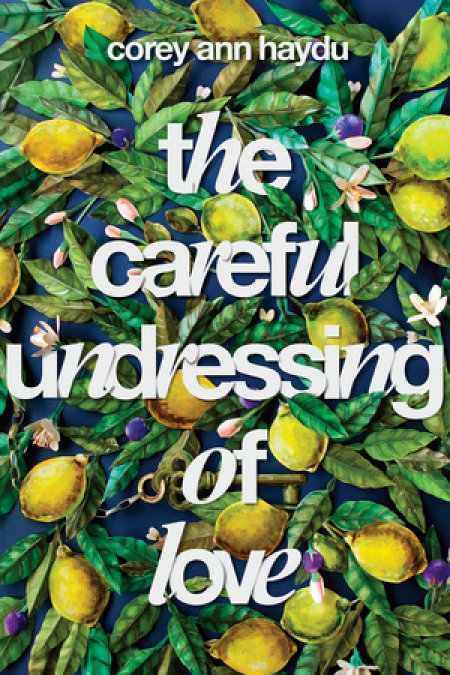Chapter 1.
Angelika grabs my face, stares into my eyes, and looks for signs of love.
Her hands are cool and stronger than I remember. It’s not the first time she has pressed them against my cheeks. She leans in so close I can smell leathery Aramis cologne on her neck. She wears it every day—says it reminds her of her late husband. It is a Devonairre Street smell. Like freshly watered mint and basil that I planted in the garden or just-smoked cigarettes on Charlotte’s stoop or my mother’s chemical hairspray.
I keep my eyes open and on Angelika, but I’m aching to slide my sunglasses over my face and disappear.
I don’t like the oversoft, worn texture of her hands or the way I can feel her wedding ring folded beneath her wrinkles.
She turns my face this way and that, like love might be hiding under my chin or behind my ear. She brings her fingers close to my eyes, pulling at them from below so they open a little wider. I shift my gaze skyward. Someone tied balloons to the rusting garden gate for the Shared Birthday, which comes every year at the beginning of April, and a few of them have freed themselves and are floating up, up, and away.
I think I wouldn’t mind being a red balloon against a blue Brooklyn sky, looking down over Devonairre Street.
Angelika moves a hand to my forehead. Beside me, Delilah sighs. She’s next. Angelika’s eyes close and her lips purse and she tilts her ear to the ground like she’s listening for an earthquake.
When her eyes open, she’s beaming. From a certain angle she looks almost young, but most of the time she looks even older than her seventy-five years. That’s what a lifetime on Devonairre Street does to a person, I guess.
I love it here in spite of Angelika and her minions and the crazy things they believe. Or maybe because of them.
She pats my cheek. It’s almost a whack. There’s power behind it. “Good girl,” she says before looking over at my mother. “Lorna’s not in love.” Her Polish accent lilts on the word love so it sounds like luhf. The accent itself is a mystery—she was born on the street to a Polish mother and an American father, but her voice carries her mother’s history instead of her father’s or her own.
When we ask her about it, Angelika only shrugs.
“I am my mother’s daughter,” she says. “We are all our mothers’ daughters, are we not?”
With Angelika, the only answer we are allowed is yes.
And it’s true. Or it is for me. I look at my mother. She raises her eyebrows and lets her eyes laugh while the rest of her stays serious. I echo the look. I’m always a little bit scared and a little bit delighted during the Shared Birthday.
“There is not even the littlest bit of love on your daughter,” Angelika says to my mother, who is across the garden, past the bench and the waterless fountain, by the opposite gate. My mother nods like it matters; Angelika nods back and pats the top of my head, telling me to step away so that the next girl can step forward.
We hope you are enjoying the book so far. To continue reading...
Copyright © 2026 All Rights Reserved
